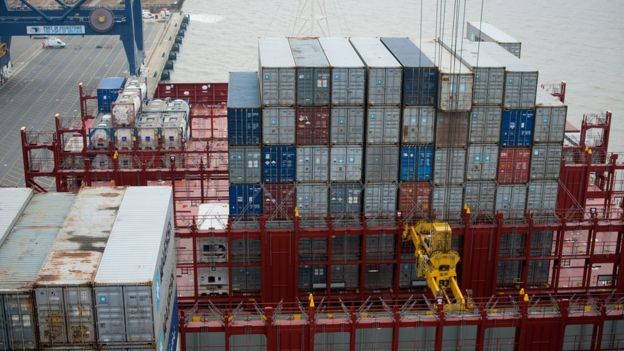There have been indications that an earlier sharp drop in value of the British pound has a positive rebound on UK exports.
Reports from the Office for National Statistics (ONS), have it that in November last year, the volume of exported goods from the UK experienced a 1.1% rise, the highest in a prior three-month period and up from an earlier report of a 2.7% decline. Â
Economists claim that the hike in the country’s export could be a direct result of the fall in value of the pound since June 2016. They further claimed that an earlier rebound in manufacturing output in November could also be a contributing factor.
In a research note, Chris Williamson chief business economist at IHS Markit said, "Signs are appearing... that the weaker pound is benefiting the economy, especially in terms of rising goods exports". He further noted that, "Stronger exports do at least seem to be helping drive manufacturing output higher".
Among other economic authorities reacting on the development, UK’s economist at Capital Economics, Paul Hollingsworth said there were "encouraging signs" that the fall in the British pound was "having a positive impact".
However, in spite of a few bright moments as this, the country’s overall trade position declined significantly late last year.
UK’s trade deficit in goods and services had in November last year been estimated at £4.2bn, a whopping 62% increase from £2.6bn only month earlier.
Economist claim that the increasingly widening gap is consequence of a £3.3bn rise in imports. Only in November 2016, the trade deficit on exclusively goods rose to £12.2 billion (an increased value of £2.3 billion from October same year).
The ONS also disclosed that machinery and transport equipment imports was the ‘highest donor’ to the increase in trade deficit with a staggering £1.4bn rise to its credit. Specifically, the agency pointed to increased imports of laptops and tablets from China. In addition, it also emphasized the rise in transport goods such as ships, railway equipment, etc. from non-European Union member countries.
The monthly trade data are often volatile and subject to frequent reviews. Anxiety over quality of the trade data had earlier forced regulators to suspend ONS’ status as "national statistic" in November 2014. The agency has since been working on an application to have it restored to that status.
Â





